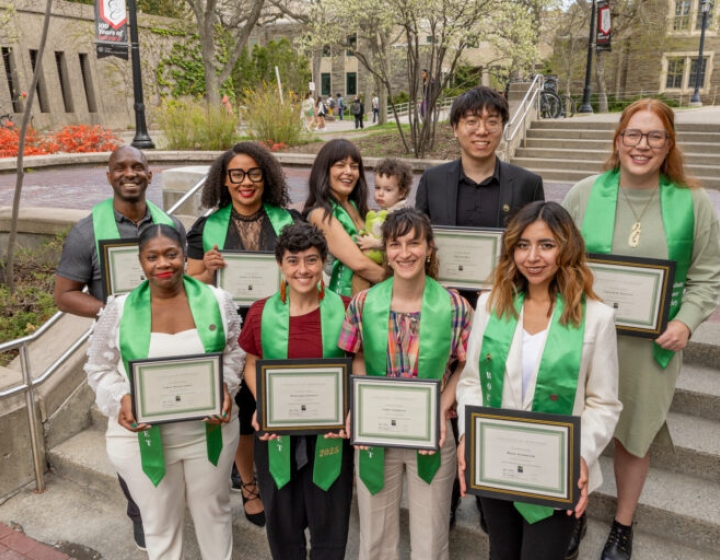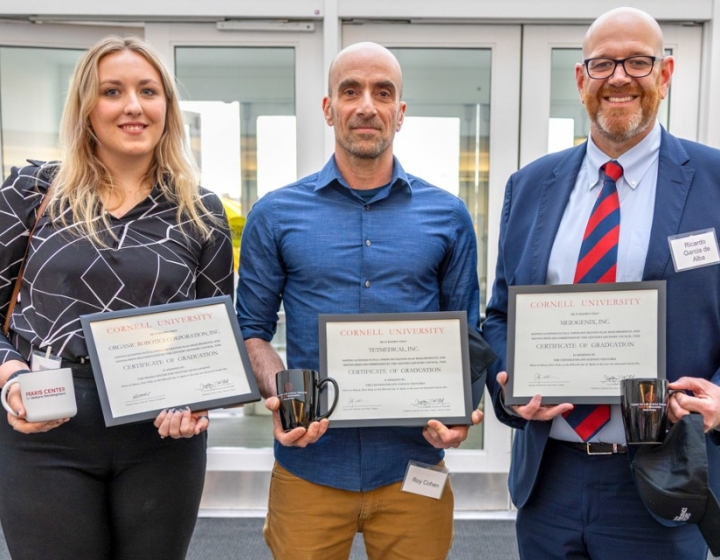Veterinary Scholars Program Symposium attendees discuss future of student research
Doctors practicing human medicine have many opportunities for conducting research, but for DVMs, the path to a career in veterinary research is much less clear.

Recently, a delegation of 31 Cornell students traveled to the National Institutes of Health in Bethesda, Maryland to attend the annual Veterinary Scholars Program Symposium, where participants discussed new ways to support students who wish to pursue veterinary research. The American Association of Veterinary Medical Colleges, the National Institutes of Health, and Boehringer Ingelheim (formerly Merial) hosted the meeting, which included student research presentations and informational sessions on alternative careers in veterinary medicine.
“It’s an inspiring meeting in the sense that it’s a collaborative effort between scientists in government, academia, and industry to invest in the future of veterinarian-scientist training,” says Frances Chen, a student in the Combined DVM/PhD Degree Program. Chen gave an invited talk at the Combined DVM/PhD and Comparative Biomedical Scientist Training Colloquium on her research on how gene regulation in the noncoding regions of the genome contributes to proper organ development.
The NIH is interested in the career development and research training of veterinary students because the work often has application for human medicine. David Gludish, a student in the Combined DVM/PhD Degree Program, presented a poster at the colloquium on his research on HIV reservoirs, which persist in the lungs despite drug treatment. There, he met colleagues and potential mentors interested in creating a new model for funding veterinary research through NIH-supported postdoctoral fellowships. “There are all the stakeholders, from students to deans, under one roof, talking as colleagues and addressing the challenges and successes of attracting veterinary students to basic research,” says Gludish.

The combined degree colloquium was the first time that members of DVM/PhD programs nationwide had met, and directors of these programs agreed to start a formal association of DVM/PhD programs, both to improve training and to strengthen their position to secure funding for student research.
The meeting is also the culmination of two Cornell summer research programs, the Leadership Program for Veterinary Students and the Veterinary Investigator Program, whose participants present their work at a poster session. Attendees hope that these students may find greater support for a career in veterinary research than previous generations.
--By Patricia Waldron




